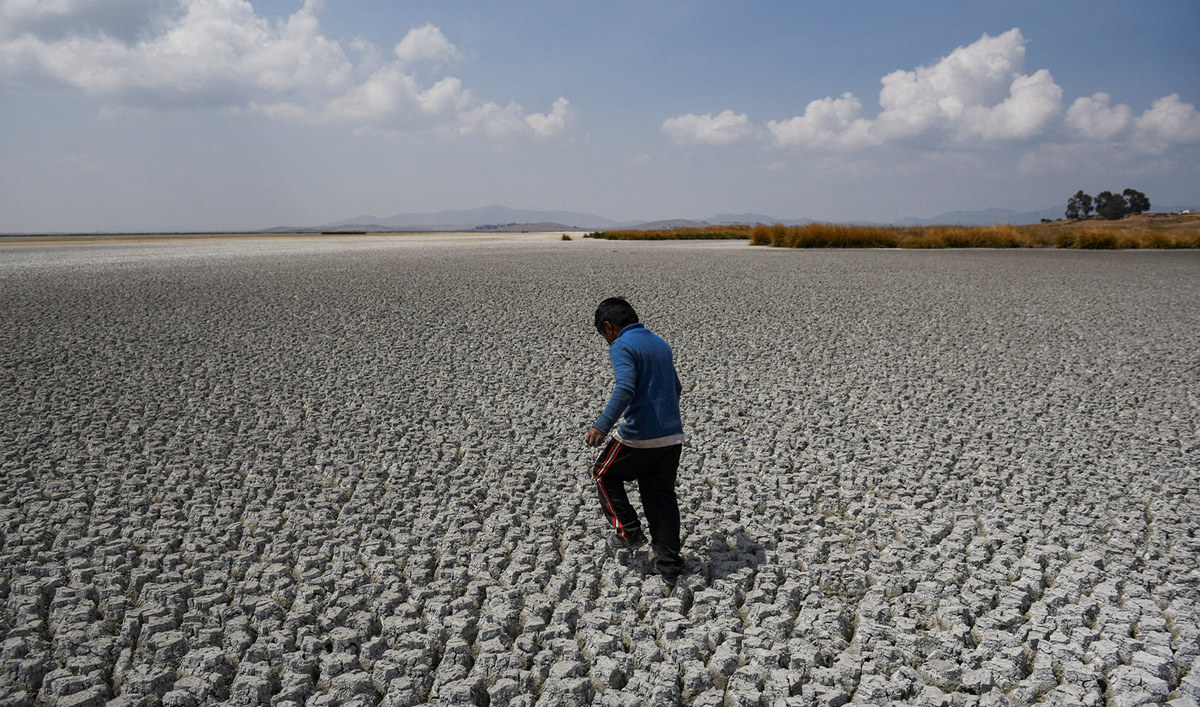LONDON: As impacts from prolonged droughts to extreme heat worsen, climate change is threatening the world’s ability to produce enough nutritious food and ensure everyone has access to it.
At COP28 in Dubai, more than 130 country leaders on Friday called for global and national food systems to be rethought to address climate change — the first such official recognition at a UN climate summit of growing worries about food security and planet-heating emissions from agriculture.
Here’s how global food systems and climate change affect each other, and what might be done about rising risks:
How is climate change threatening food security?
As fossil fuel emissions heat the planet, they are driving more extreme weather — from heavy rains and droughts to heatwaves — as well as gradual sea level rise. All can affect crops, ruin farmland and make it harder for farmers to work.
A warming climate also is bringing crop diseases and pests into new locations or making infestations more severe, ruining more harvests and reducing yields.
Such problems, combined with other pressures on food systems — from growing conflict to crop export restrictions by food-producing countries and speculation in markets — mean food is becoming less affordable and more people are going hungry.
The UN World Food Programme estimates that 333 million people face “acute” food insecurity in 2023 in the 78 countries where it works — a huge boost from about 200 million prior to the COVID-19 pandemic.

Alex Flores walks on a dry area of Lake Titicaca, Latin America's largest freshwater basin, as it is edging towards record low levels, on Cojata Island, Bolivia on October 26, 2023. (REUTERS/File)
Crop failures are not a new phenomenon, with surpluses in some regions long making up for shortfalls in others, but scientists fear stronger climate impacts could drive simultaneous failures across major global “breadbaskets,” resulting in a swift rise in global hunger.
What is being done to address these threats?
Around the world, many farmers are adapting to climate extremes in a variety of ways, from digging irrigation ponds to trap floodwater and store it for dry times, to adopting new climate-smart seeds and bringing back hardy traditional crops.
But some challenges — such as more frequent and extreme heatwaves that can make it difficult for farmers to work outside — are harder to counter.
Money to help small-scale farmers — who supply about a third of the world’s food — adapt to climate risks is also falling dramatically short.
In 2021, they received only about $2 billion, or 0.3 percent of total international climate finance from public and private sources, according to Amsterdam-based think-tank Climate Focus.
With little outside help available, many such farmers — who have contributed little to the emissions heating up the planet — are paying the costs of climate adaptation themselves.
The Climate Focus survey of 13 countries in Asia, Africa and Latin America found nearly 440 million small-scale farmer households now spend about $368 billion annually on adaptation costs, or about $838 each per year.
Analysts say efforts to shore up global food security also need to reach well beyond farms, to try to rein in speculators in food markets, discourage export clampdowns and revamp increasingly overwhelmed humanitarian aid systems.
Can we find ways to grow more food to make up for the losses?
Expanding the amount of land being farmed — or boosting the use of fossil-fuel-based fertilizers and developing new crop varieties — have long been accepted ways to grow more food.
But agricultural land expansion often comes at the expense of forests and other natural ecosystems that are critical to conserve because their vegetation absorbs and stores climate-heating carbon dioxide emissions in order to grow, helping to curb climate change.
For example nearly 20 percent of the vast Amazon rainforest has now been lost, largely to soybean farming and cattle ranching.
Scientists fear additional deforestation could over time turn the forest into a dry savanna, imperiling rainfall for agriculture across South America — and sabotaging the world’s climate and biodiversity protection goals.
Efforts to intensify the amount of food grown on a set land area have shown some success but often require large amounts of expensive fossil fuel-based fertilizers.
In recent years, however, more environmentally friendly farming methods are gaining new adherents, from the United States to India.
But food analysts say the best way to increase global supplies is not to grow more but to reduce the huge amount of food wasted each year.
While the world produces enough food for everyone, about a third of it is lost or wasted along the supply chain from field to fork, according to the United Nations, which says the average person wastes 74 kg (163 lb) of food each year.













